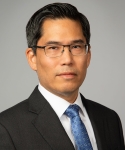This one-hour panel discussion will be the third installment in an ongoing series of webinars based upon the CCA Guide to Best Practices in Commercial Arbitration – Fourth Edition. Attendees will receive complimentary access to Chapter Seven: Motions.
Featured Panelists:
- Hiro N. Aragaki – C.Arb. Dual-qualified (U.S. and U.K.) international arbitrator and mediator at JAMS. Nearly 20 years as neutral, with substantial experience in commercial, banking & finance, technology, and entertainment disputes. Tenured Professor of Law, U.C. Hastings College of Law, San Francisco, and Professorial Research Associate, SOAS School of Law, London, England.
- Deborah A. Coleman – Experienced arbitrator and mediator focused on complex business cases and technology and intellectual property disputes. AAA large, complex commercial and technology, and CPR Institute panels. Author, “Requests for Interim Relief,” in Arbitrating Commercial Disputes in the United States, ed. David Singer, PLI (2d ed. 2020).
- William H. Crosby, Jr. – SVP and Associate General Counsel, Interpublic Group. Experienced in-house counsel and arbitrator who has presided over more than 200 AAA, ICDR, ICC, and ad hoc cases. Speaks regularly on arbitration topics, offering his dual perspectives as an arbitrator and a party representative.
Moderator:
- Richard H. Silberberg – Past President, CCA. Co-Chair, Dorsey & Whitney LLP International Arbitration & Litigation Group. Over 30 years of experience as arbitrator of domestic and international commercial disputes. Co-author, “Debunking Misperceptions: The Upsides of Commercial Arbitration,” Litigation, Vol. 47, No. 4, Summer 2021.
Questions For Discussion
- The arbitration clause does not cover the claim against my client. How should I object to the arbitrator’s jurisdiction?
- The arbitration pleading does not state a legally cognizable claim against my client. Can I move to dismiss it?
- The opposing party has not produced the documents I need. How should I raise discovery disputes with the arbitrator?
- If the case were in court, I would move for summary judgment following fact discovery. Can I do that in arbitration?
- Opposing counsel has a conflict of interest. Can I ask the arbitrator to disqualify my adversary?
- The opposing party failed to obey the arbitrator’s discovery order. Will the arbitrator entertain my motion for sanctions?
This program will include optional audience participation in a Q&A with panelists.
Please note that this conference will be recorded and may be made available by JURIS Publishing after the event. Audience members will not be visible in the recording.


